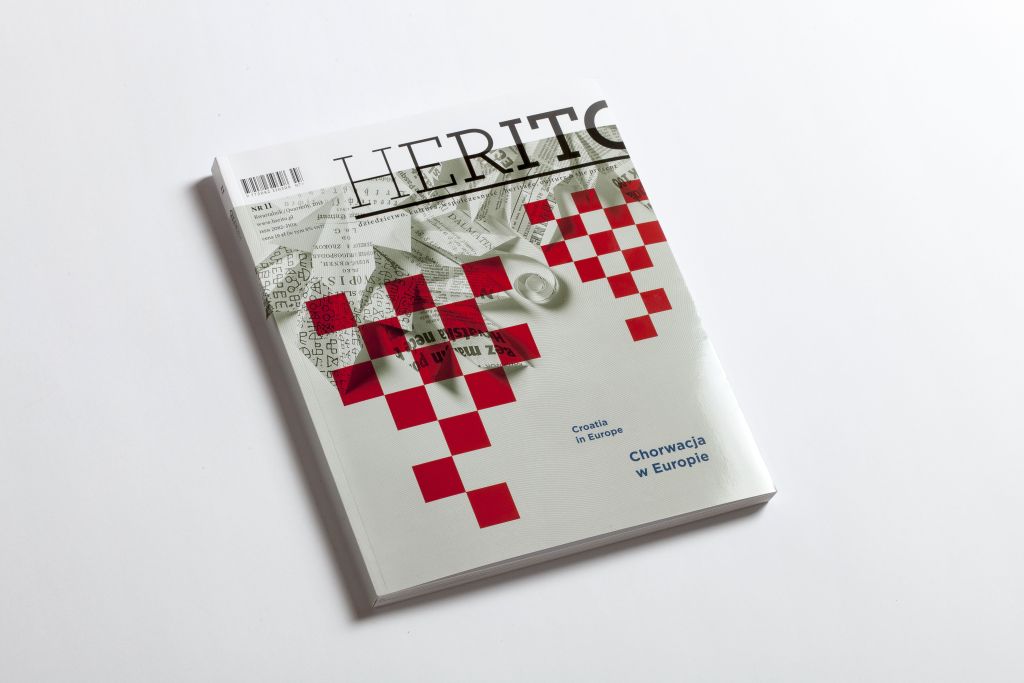Croatia in Europe
July 31, 2013 -
Example Author
-
News Briefs

Herito 11_26.jpg
The 11th issue of HERITO quarterly titled “Croatia in Europe” has just been released!
On July 1st 2013, Croatia joined the European Union and became a new member state. Once again, pertinent issues of cultural diversity and multi-nationality/multi-ethnicity in Europe call for being re-examined. And these are precisely the matters that the latest issue of HERITO quarterly addresses.
Democratic Croatia came into being twenty-three years ago, although it can hardly be considered a young state. Despite Croatia’s debut in the European Union, it has been instrumental in the creation of European culture for millennia. The success of its European integration does not remove certain important questions from the horizon. Who do the Croats feel themselves to be? Do they consider their home to lie in Central Europe or, perhaps, the Mediterranean space? What is national identity, and is there any sense in discussing such a construct at all? Where is the boundary between “past” and “present”? Should the Yugoslavian idea be filed in the archives of history once and for all?
HERITO quarterly is a platform for debate on important issues related to contemporary culture, art and heritage. The region of Central Europe is a starting point for these considerations. The magazine is a highly regarded participant of international debates on culture. It is published in bilingual (Polish-and English) version.
The Croatian dilemmas are addressed by Maciej Czerwiński, Slavenka Drakulić, Predrag Matvejević, Marko Špikić, Zvonimir Milanović. The issue also features a discussion on art and politics with Andrzej Wajda and on the European Capital of Culture Marseille-Provence 2013 with its Artistic Director.
In the issue:
Maciej Czerwiński – a Doctor of Philosophy in Slavic Languages and Literatures, translator and literary critic – writes about Croatian Europeanness spread between its two cultural variants – Central European and Mediterranean. Quotation: “The method of dealing with this borderland status is to exaggerate one’s Europeanness and treat it as a mission. Thus, the Croats have to be the most ardent expressers of Europeanness in order to differentiate themselves sufficiently clearly from the real Balkans.”
Slavenka Drakulić – a Croatian journalist, writer and essayist – writes about the ways Croatia could become part of an intricate configuration of the member states – a division into the East and the West as well as the North and the South. Quotation: “The first class wagon id divided between the core, the luxury club that really decides and the rest of the eurozone. Then there is second class, which consists of the former communist countries though there are great differences between Poland and Romania, the Czech Republic and Bulgaria.”
Predrag Matvejević – a writer and French scholar – writes about the Yugoslavian idea before and after Yugoslavia. Quotation: “At present, publicly very few people refer to their Yugoslavian experience for fear of being labelled a ‘yugonostalgist’, or to avoid accusations formulated by the most extreme group of nationalists”.
Marko Špikić – the President of the Croatian branch of the International Council of Monuments and Sites (Icomos), his research focuses on the history and theory of conservation – writes about Croatian political discourse being overshadowed by specialist and public discourses. Quotations: “With some interruptions, in the following decades individuals continued their work in Croatia trying to convince statesmen and the people that preservation of cultural heritage was important”.
***
Central Europe at your fingertips! – digital HERITO for iPads and Android tablets. Since August in App Store and Google Play. Polish and English-language versions available for download.
To learn more about the contents of the latest issue of HERITO quarterly visit our website at www.herito.pl where you will also find free on-line articles and the archive with previous issues. You can also subscribe to a newsletter and order subscription.
HERITO is also available in the ICC on-line bookshop at www.mck.krakow.pl/bookshop, EMPIK stores, quality bookstores all over Poland and selected stores abroad.
Press contact: Edyta Gajewska, 12 42 42 866; e.gajewska@mck.krakow.pl; Magdalena Link-Lenczowska, 12 42 42 875; herito@mck.krakow.pl





































